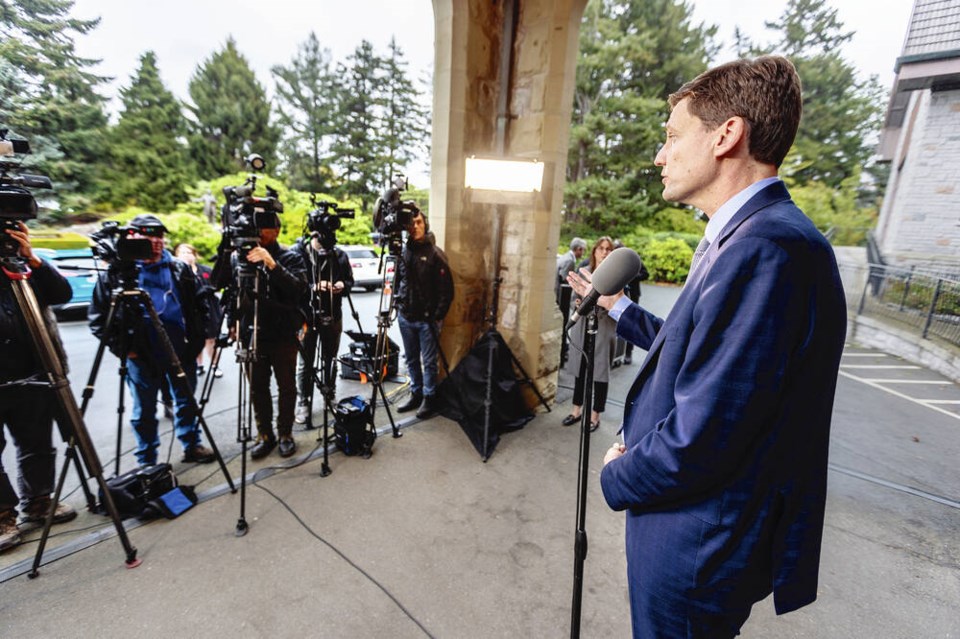Tuesday’s midterm election results in the U.S. should be a warning to politicians here in B.C., on both sides of the aisle.
While several races are still too close to call, it appears the Republican party has gained control of the House of Representatives.
That was to be expected. Since the Second World War, with only two exceptions, the party that held the White House lost ground in the midterms.
Certainly the overall results were less encouraging than the Republicans had expected. Nearly all the pre-election polling predicted a “red wave,” based in part on voter concerns over the rising cost of living and urban violence. That didn’t happen.
Nevertheless, losing control of the law-making hall of Congress is a setback for the Democrats.
And that should resonate here, for the same issues predominate — pocketbook worries and violence in the streets.
We’ve already seen the impact that exasperated voters can have, in last month’s municipal elections. Numerous mayors were defeated. In Victoria there are eight new councillors.
Could the same fate await David Eby and his NDP administration?
Eby has already promised firmer prosecution of repeat offenders, and a strategy to fast-track the development of low-income housing.
It may also be that Health Minister Adrian Dix’s generous new fee structure for family physicians will relieve, at least for now, public anxiety on the health-care front.
Yet none of these issues is amenable to rapid progress. The shortage of affordable housing is a national problem that has withstood years-long efforts to relieve it.
Catch-and-release policies that allow dangerous offenders back on the street are due in substantial part to lax federal oversight, restrictive judicial philosophy and the predominance of mental illness. Here again, no immediate solutions beckon.
And helpful as the new doctors’ fee plan will be, it takes the better part of 10 years to train a family physician. The endless stream of medical horror stories that Dix has been regaled with during question period are not going to cease overnight.
If there’s good news for Eby, it’s that his party currently enjoys a 10-point margin over that of Liberals in recent opinion polls. But that may not last.
Voter backlash, once it becomes entrenched, tends not to discriminate. Whoever is in power becomes a target.
Faced with that prospect, the question is how the major parties ready themselves for the next provincial election.
The B.C. Liberals and Greens may well look forward to pummelling the government on its record, but voters want answers too.
Kevin Falcon and Sonia Furstenau will have to do more than criticize. They must be able to show that they have practical solutions to what, in many respects, appear to be intractable social and economic problems.
Eby faces a different challenge. Two years from now, when the next provincial election is due, his party will have held office for seven years.
It will be his task to explain why more has not been done.
In effect, Eby will have to convince voters that he understands what they’re going through, and that his government has taken every measure possible.
John Horgan could have done this. He played effortlessly the role of working-class champion.
Eby must fill those shoes, or pay the price.
>>> To comment on this article, write a letter to the editor: [email protected]



